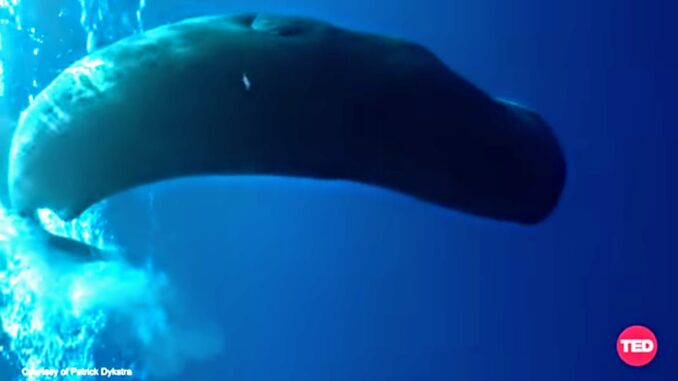
If you’re here for Project SETI, you’re close (sorta). The Search for Extra Terrestrial Intelligence is the very well known attempt to find intelligent life somewhere in the cosmos through exhaustive examination of radio wave signals emanating from the sky above. Project CETI, on the other hand, is all about the attempt to communicate with another intelligent species here on Earth, specifically sperm whales. CETI stands for Cetacean Translation Initiative, and aims to harness AI (artificial intelligence) to decipher the language of sperm whales, and possibly even to learn to communicate with the largest brains on Earth.
David Gruber, Presidential Professor of Biology and Environmental Sciences at Baruch College at the City University of New York is founder and leader of the project, which officially got underway in April, 2021, after bringing together experts from various fields including marine biologists, linguists, cryptographers, technologists, roboticists, and AI scientists. First on the agenda is development of a soft, non-invasive recording device that can be attached to the whales without harming or bothering them. The recording device will collect audio and other data. When device memory is full, it will detach itself and float to the surface where researchers can recover it. Other whale recording devices are also planned: ‘amphibious drones’, robotic fish, and buoy arrays, are all meant to provide vast amounts of data for AI to study.
Project CETI, a registered 501(c)3 non-profit organization, is composed of Aarhus University, Baruch College, City University of New York, Dominica Sperm Whale Project, Google Research, Government of the Commonwealth of Dominica, Harvard University’s School of Engineering and Applied Sciences, Institute for Scientific Interchange Italy, Massachusetts Institute for Technology’s Computer Science and Artificial Intelligence Laboratory (CSAIL), National Geographic Society, Oxford University, University of California at Berkeley and the University of Haifa.
“David Gruber: Can we learn to talk to sperm whales? | TED” (6:44)
